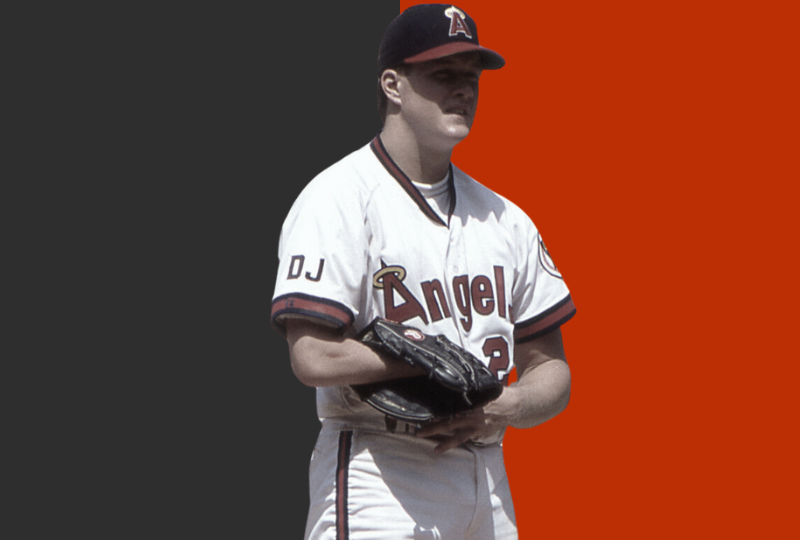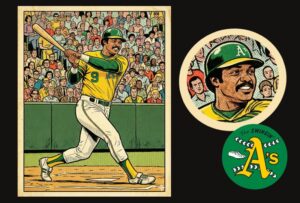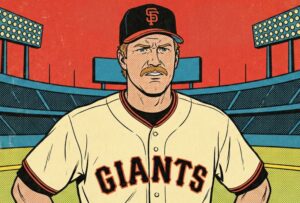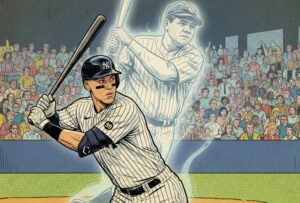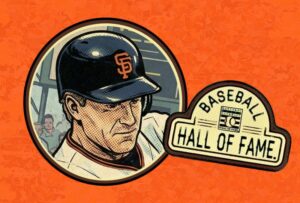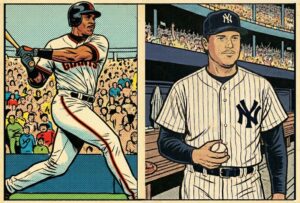Former MLB pitcher Jim Abbott’s life is an inspiring journey. Abbott overcame the birth defect of having only one hand to transcend barriers in baseball. Abbott’s career as a one-handed pitcher in Major League Baseball was filled with achievements and historic moments, but he had to overcome jokes, self-deprecation, failure and pain along the way, showing that anyone can overcome their perceived limitations and fulfill their dreams.
Early Life and Challenges
Abbott was born without a right hand on September 19, 1967, in Flint, Michigan. When he was young, he loved to bounce balls off walls to practice field and throwing. His father taught him to focus on what he had, not on what he was missing, which helped him find ways to win. Abbott eventually learned to adapt and used his left hand for any tasks, displaying resilience and determination, which would help him conquer many challenges.
Abbott was the starting quarterback of Flint Central High School and led them to the Michigan State championship finals. He also excelled in baseball, and the Toronto Blue Jays drafted him after graduation because of the promise and competitive spirit he showed, but he decided to go to Michigan on a baseball scholarship.
When pitching, Abbott wore a right-hander’s fielder’s glove over the stump at the end of his right arm and he then quickly switched the glove to his left hand to handle any balls hit back to him after his pitches.
Collegiate Success: A Star at Michigan
Abbott’s career at Michigan was stellar to say the least, he was the team’s star pitcher for three years, posting a 26-8 record with a 3.03 ERA and 1.14 WHIP in 234 1/3 innings across 46 games (41 starts), recording 186 strikeouts, to go along with 13 complete games and three shutouts. He was named the 1988 Big Ten Male Athlete of the Year, and a 1988 Sporting News College All-American.
A Cornerstone of Team USA
In 1987, he was part of Team USA and became the first American pitcher in 25 years to beat Cuba, on Cuban soil. Team USA would then win a silver medal at the Pan-American Games, and Abbott claimed the US Baseball Federation’s Golden Spikes award as the country’s best amateur player. Also, that year, Abbott became the first baseball player to win the Sullivan Award, which was given to the most outstanding amateur player in the US.
In the 1988 Seoul Olympics, Abbott won the decision in Team USA’s 5-3 victory against Japan to give the US their first gold medal in baseball.
MLB Draft and Rookie Year
Jim Abbott was selected with the eighth pick in the first round of the 1988 MLB Draft by the California Angels. He bypassed the minors and directly joined the team’s starting rotation, which many saw as a publicity stunt, but he silenced his doubters and overcame early struggles to finish the year 12-12 with a 3.92 ERA and 1.46 WHIP in 181 1/3 innings across 29 starts (four complete games and two shutouts), recording 115 strikeouts and 74 walks.
Career Highlights
Abbott had the best year of his career in 1991, when he went 18-11 with a 2.89 ERA and 1.21 WHIP in 243 innings across 34 starts (five complete games and one shutout) with the Angels, recording 158 strikeouts and 73 walks, finishing third in American League Cy Young Award voting.
In 1992, Abbott won the Tony Conigliaro Award. Tony Conigliaro, who was hit on the cheek with a fastball in a game in 1967 and came back a year and half later and still produced at a high level for two more seasons, before being forced to retire as his eyesight was permanently damaged. This award is given annually to the MLB player who best overcomes a major, life altering obstacle and thrives through the adversity.
Abbott also won the Hutch Award in 1995. This award is given to the MLB player that best perseveres through adversity and exemplifies the fighting spirit and competitive desire of the late Fred Hutchinson, who was stricken with fatal lung cancer and kept managing the Reds in 1964.
The No-Hitter Against Cleveland
On September 4, 1993, Abbott played for the Yankees and threw a no-hitter against the then Cleveland Indians in a 4-0 win, a feat he describes as the greatest highlight of his career.
His no-hitter was against an Indians team that included Kenny Lofton, Carlos Baerga, Albert Belle, Manny Ramirez, Jim Thome, and Sandy Alomar Jr.
That fearsome lineup was full of All-Stars and that year Carlos Baerga and Albert Belle won the Silver Slugger Award. The award is given to the best offensive player at each position in both the American League and the National League. It is given by Hillerich & Bradsby, the manufacturer of Louisville Slugger bats out of Louisville Kentucky. Fanatics Sportsbook Kentucky is just one of the many operators MLB fans in Kentucky can take advantage of this upcoming baseball season.
The Trade to the White Sox and How Abbott Never Gave Up
In 1995, the Yankees traded Abbott to the White Sox, but he returned to the Angels by mid-season. The following year was the worst of his career, as he went 2-18 with a 7.48 ERA and 1.75 WHIP in 142 innings across 27 games (23 starts). At one point Abbott lost 11 straight games and his struggles made him decide to retire, but his fire still burned and the time away from baseball made him realize that he really didn’t want to give up. Abbott joined the White Sox in 1998 and went 5-0 with a 4.55 ERA in five starts. He then played one more year, posting a 2-8 record with a 6.91 ERA in 20 games (15 starts) for the Brewers in 1999.
“In 1996 I went out and had what might be one of the worst years a pitcher can have: 2-18. Sports had always been my crutch. For an insecure kid who wanted very much to be accepted, success in athletics covered up a lot of hurt for a long time. But in 1996 it all came crashing down. I was failing. As hard as I tried it would just get worse. By the end of they year I was sent to the minor leagues for the first time in my life. I’m not going to tell you that I handled that year with all of the grace I would have liked. All I could do was to keep on trying. The following spring I was released from the Angels. Cleaned out my locker in front of my friends and drove home alone through the Arizona desert. My whole world was upside down. I missed it so much. I desperately wanted to get back, but I was also gun-shy from going through a year and a half of failure.
Inspiration can come from unexpected places. An old manager called, he told me that he didn’t think I was finished. And that’s all it took, we started working.
Finally things turned around instead of baby steps those I started making large strides until I was able to call my wife and tell her the Chicago White Sox had just called me back to the big leagues. I could have kissed the mound. To make it back seems to me as great an accomplishment as making it in the first place. That experience illuminated to me that no matter how far we go in life we will continue to be tested. There is no finish line,” Abbott wrote in an article for the All American Entertainment (AAE) Speakers Bureau.
Abbott’s Lessons to Overcome Challenges
On April 3, 2012, Jim Abbott‘s memoir ‘Imperfect: An Improbable Life’ was published. The book is an honest and revealing chronicle of Abbott’s journey.
Abbott’s legacy goes beyond stats and records. He is living proof that limitations are just in our minds and that we can all adapt, overcome adversity, and find excellence. Abbott exemplifies how anyone can accomplish anything if there’s willingness to adapt, put the work in, trust, and persevere with determination and accountability while dealing with obstacles.
Nowadays, Abbott travels the country working as a motivational speaker.

